Of the 29 governorship elections held last Saturday across Nigeria, seven are yet to be concluded. Six of the seven were formally declared inconclusive elections. The last, Rivers, governed by Nigeria’s largest opposition party, PDP, has simply been halted with the electoral commission, INEC, unsure of how to proceed.
Perhaps coincidentally, of the six states where elections were declared inconclusive, the PDP was leading in five (Adamawa, Bauchi, Benue, Kano, and Sokoto). Nigeria’s ruling party, APC, was in the lead in Plateau.
The seeming disadvantage of the PDP in the inconclusive elections has caused leaders of the party to raise eyebrows, accusing the electoral commission of bias.
The National Publicity Secretary of the PDP, Kola Ologbondiyan, on Monday accused INEC of being ‘’overtly partisan’’ and surrendering its independence to the ruling APC by “declaring governorship elections in states where the PDP was in clear lead as inconclusive.”
Learning From History
Unarguably, the PDP has every reason to be worried. During last year’s governorship election in Osun State, the PDP was leading the APC until INEC declared the elections inconclusive.
In the first ballot, the PDP candidate, Ademola Adeleke, won majority votes of 254,698 votes while Gboyega Oyetola of the APC came a close second with 254,345 votes.
Mr Adeleke’s margin of lead, 354 votes was lower than the cancelled votes which were 3,498. Hence the re-run in seven polling units.
<img data-attachment-id="277247" data-orig-file="https://media.premiumtimesng.com/wp-content/files/2018/07/Gboyega-Oyetola-the-Chief-of-Staff-to-the-outgoing-Osun-State-Governor.jpg" data-orig-size="596,446" data-comments-opened="1" data-image-meta="{"aperture":"0","credit":"","camera":"","caption":"","created_timestamp":"0","copyright":"","focal_length":"0","iso":"0","shutter_speed":"0","title":"","orientation":"0"}" data-image-title="Gboyega Oyetola, Governor of Osun State." data-image-description="
Gboyega Oyetola, Governor of Osun State.
” data-medium-file=”https://i2.wp.com/media.premiumtimesng.com/wp-content/files/2018/07/Gboyega-Oyetola-the-Chief-of-Staff-to-the-outgoing-Osun-State-Governor.jpg?fit=466%2C349&ssl=1″ data-large-file=”https://i2.wp.com/media.premiumtimesng.com/wp-content/files/2018/07/Gboyega-Oyetola-the-Chief-of-Staff-to-the-outgoing-Osun-State-Governor.jpg?fit=596%2C446&ssl=1″ src=”https://onlinenigeria.com/wp-content/uploads/2019/03/analysis-inec-pdps-lead-and-the-burden-of-inconclusive-elections.jpg” width=”600″ height=”449″ data-original-width=”600″ data-original-height=”449″ itemprop=”http://schema.org/image” title=”Gboyega Oyetola, Governor of Osun State.” alt=”Gboyega Oyetola, Governor of Osun State.” data-pagespeed-url-hash=”3609382844″>
By the time supplementary elections were held in the affected seven polling units in the state, the ruling government ensured the militarisation of the process. Journalists and observers were denied access to the crucial polling units while armed thugs determined who voted in some of the units during the supplementary election. The supplementary poll was condemned by virtually all credible local and international observers.
At the end of the supplementary election, the PDP’s initial victory had been upturned and the APC candidate, Gboyega Oyetola, was declared the winner of the poll. At the end of the tally of votes, the APC candidate scored a total of 255,505 votes while the PDP candidate scored a total of 255,023 votes.
Although the PDP and its candidate, Ademola Adeleke, are still challenging the APC victory at the election tribunal, the experience in Osun has made the party more warry of inconclusive elections.
INEC’s Inconsistency
The major reason INEC declared the 2019 governorship election in the six states inconclusive is because the votes cancelled in each of the six states is more than the margin between the leading candidates and the runner-up.
In Adamawa, for instance, PDP’s Ahmadu Fintiri got 367,471 votes, while the APC’s Jibrila Bindow, the incumbent governor, got 334,995 votes. The margin of 32,476 votes is less than the cancelled votes of 40,988.
Dubbed the ‘Margin of Lead Principle,’ this rule is contained in Sections 26 and 53 of the Electoral Act and paragraph 41(e) and 43(b) of the INEC Regulations and Guidelines.
Therefore, supplementary elections will be held in polling units where elections were cancelled or did not hold.
However, INEC has refused to ensure a total application of this principle across the board.
PREMIUM TIMES reported how the electoral commission jettisoned it in Abia where Orji Kalu of the APC was declared the winner of a senatorial election despite that his margin of victory was less than the cancelled vote.
Perhaps coincidentally, the PDP was also the victim in the Abia case and its candidate who was declared runner up to Mr Kalu, Mao Ohuabunwa, has vowed to challenge the victory at the election tribunal.
PDP’s cry baseless
The APC, in its reaction to the complaints of the PDP regarding the inconclusive elections, says the opposition party’s claims are baseless.
“PDP only wants things to be done to favour her own interest. But for us in APC, we always subdue our interest to that of the National,” Lanre Issa-Onilu, the APC spokesperson said.
“National interests supersedes all other interest. The questions we should be asking now is what does the law say, have INEC complied with the law?
“Whether PDP is leading in 10 states or APC leading in five states is irrelevant. If there is no evidence that INEC has broken the law, then where is the cry coming from. PDP should stop asking this country to break the law so that it can achieve its objective.”
The APC’s stance is perhaps buttressed by the fact that it is not only governorship elections that were declared inconclusive.
After the February 23 national elections, INEC declared seven senatorial elections and 24 federal constituency elections inconclusive across 14 states. The supplementary elections in the affected areas were held on March 9 before eventual winners were declared.
Three Area Council chairmanship elections in Abuja were also declared inconclusive.
The 2019 election is also not the first time INEC will declare elections inconclusive. It did so in five states (Imo, Abia, Taraba, Kogi and Bayelsa states) in 2015.
However, the number of inconclusive elections in 2019 is more than at any other time since 1999.
“Inconclusive” National Electoral Commission?
The House of Representatives on Wednesday debated the spate of inconclusive elections recorded in the just concluded polls.
The lawmakers urged INEC not to subvert the will of Nigerians by declaring elections inconclusive.
Sunday Karimi (PDP Kogi) who moved the motion said prior to the 2015 governorship election in Kogi, there were very few cases of inconclusive elections and reruns.
He said the frequent cases of inconclusive elections in the last four years had made some Nigerians refer to the electoral umpire as “Inconclusive National Electoral Commission.”
INEC defends position
Despite the criticisms it has faced on the matter, INEC says it has done no wrong by declaring elections inconclusive.
Inconclusive election is part of our democratic process, INEC national commissioner, Festus Okoye, said on Channels Television Tuesday.
“It is just and equitable and have been embedded in our electoral guidelines to make sure that everybody is giving a voice.
“It will not be right if for instance a particular candidate who knows he is not strong in one area and goes there to disrupt elections and a supplementary election is not conducted there.”
The official also explained how the commission determines an inconclusive election.
“If we have over voting in any polling unit in which the number of votes cast is more than the number of registered voters, the results will be cancelled and another poll will take place.
“The commission also cancels polls if there are violent disruptions of the process. We are going to redeploy and conclude elections in those areas.
“If on account of our own logistics, we are unable to deploy in some areas, it will be unjust to deny the people the right to vote. We will go back,” he said.
Mr Okoye earlier explained the commission’s helplessness in cases, such as Orji Kalu’s, where the ‘margin of lead’ principle is not applied.
He told PREMIUM TIMES the commission was ‘helpless’ when a winner had already been declared.
He said when results are erroneously declared, the commission cannot exercise discretion, but a victim could approach the court for urgent redress.
INEC must sit up – Experts
Idayat Hassan, the director of the Centre for Democracy and Development (CCD), explained that the trend of inconclusive election and inconsistencies of INEC in applying the rule is making Nigerians lose confidence in the electoral process.
“The fact is that the political class have perfected this as a craft. It’s another rigging mechanism they use to bend wheel in their own favour.
“They always ensure they disrupt elections in oppositions strongholds with the hope INEC will cancel the process in those areas. It’s more of an intent for the political class.
“You will find out that over 100,000 cancelled votes were cancelled in some of the states. The rerun always favours the candidate with the political might so INEC must be consistent in determining whether or not an election be declared inconclusive,” she noted.
Austin Aigbe, a senior programme manager of the CDD, expressed concern on how the reruns would be conducted.
He said candidates who control state security apparatus always have an upper hand of using such machinery to militarise the process during supplementary elections.
“We saw that happen in Osun rerun,” he said.
While the PDP has made a determination to protest the trend, Rafiq Raji, a political analyst said it might be more important for the party to put in greater resources and efforts towards winning the supplementary elections.
“In any case, if it has evidence of wrongdoing, the courts are also at the disposal of its candidates,” Mr Raji said.
“What is abundantly clear is that the quality of the 2019 elections would have been greatly enhanced had the amended electoral law been assented to by President Muhammadu Buhari.
“Now that he has won re-election, Mr Buhari should do the great service of, first, signing the amended electoral bill that was forwarded to him ahead of the 2019 polls, before the end of the current legislative term.”
You may be interested
CAFCC: Olanrewaju Explains Enyimba’s Switch To Uyo Grass Pitch Ahead Al-Masry Clash
Webby - November 23, 2024Yemi Olanrewaju, Head Coach of Enyimba, has explained to Completesports.com the rationale behind the team’s relocation to the Godswill Akpabio…

Boniface Can Still Play This Year — Leverkusen Boss Alonso
Webby - November 23, 2024Bayer Leverkusen manager Xabi Alonso remains optimistic Victor Boniface will return to action for the club before the end of…

Spurs Striker Dominic Solanke Hopes To Visit Nigeria Soon
Webby - November 23, 2024Ahead of the mega clash between Manchester City and Tottenham Hotspur this weekend, Tottenham Hotspur forward Dominic Solanke has opened…




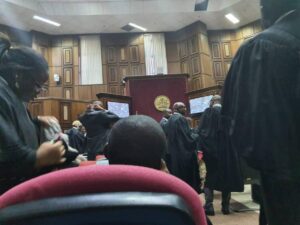
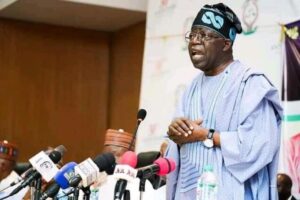

![INFO GRAPH INFOGRAPH: PDP & APC VOTES IN STATES INEC DECLARED ELECTIONS INCONCLUSIVE. [CREDIT: George Kaduna]](https://onlinenigeria.com/wp-content/uploads/2019/03/analysis-inec-pdps-lead-and-the-burden-of-inconclusive-elections.png)
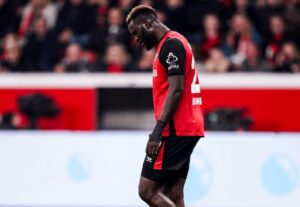


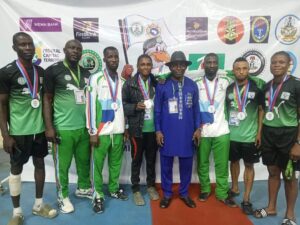
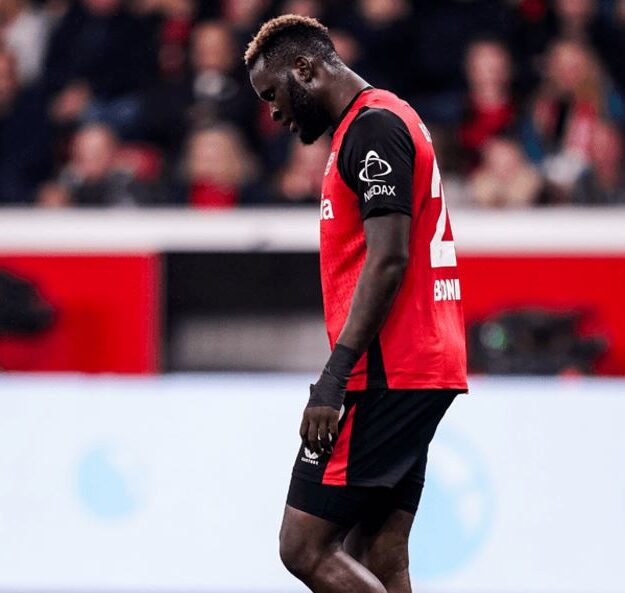


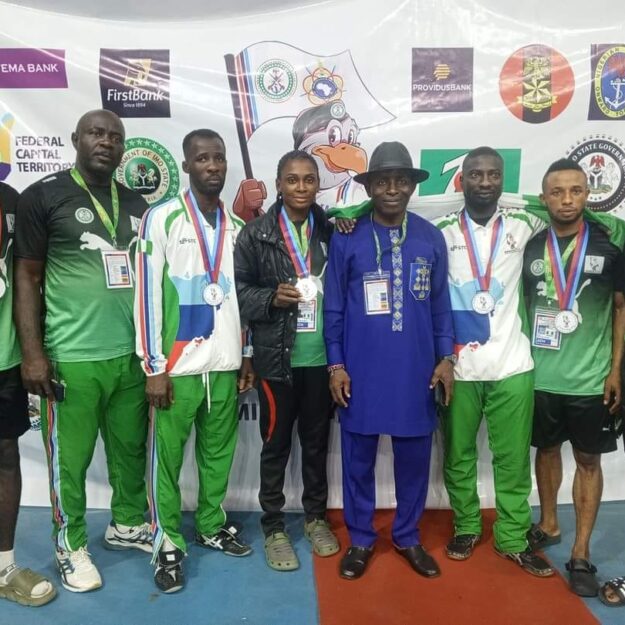

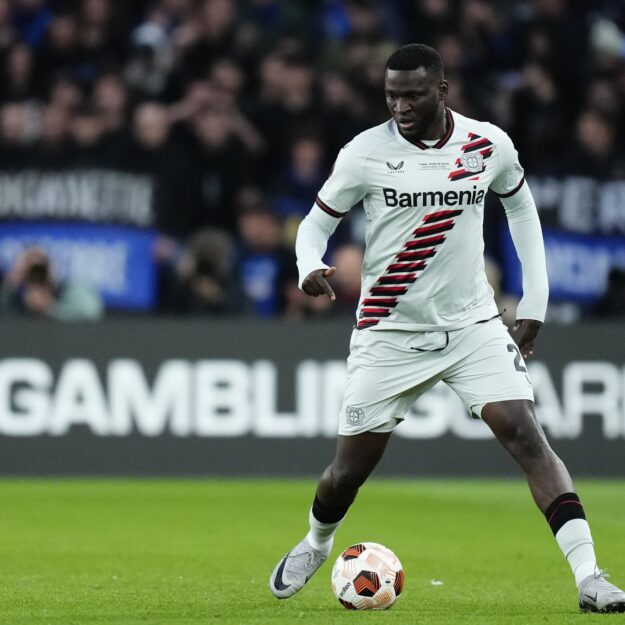




![American Pastor, David Wilson Seen Eating The Box Of Woman Who Isn’t His Wife [Video]](https://onlinenigeria.com/wp-content/uploads/2019/10/american-pastor-david-wilson-seen-eating-the-box-of-woman-who-isnt-his-wife-video-150x150.jpg)









